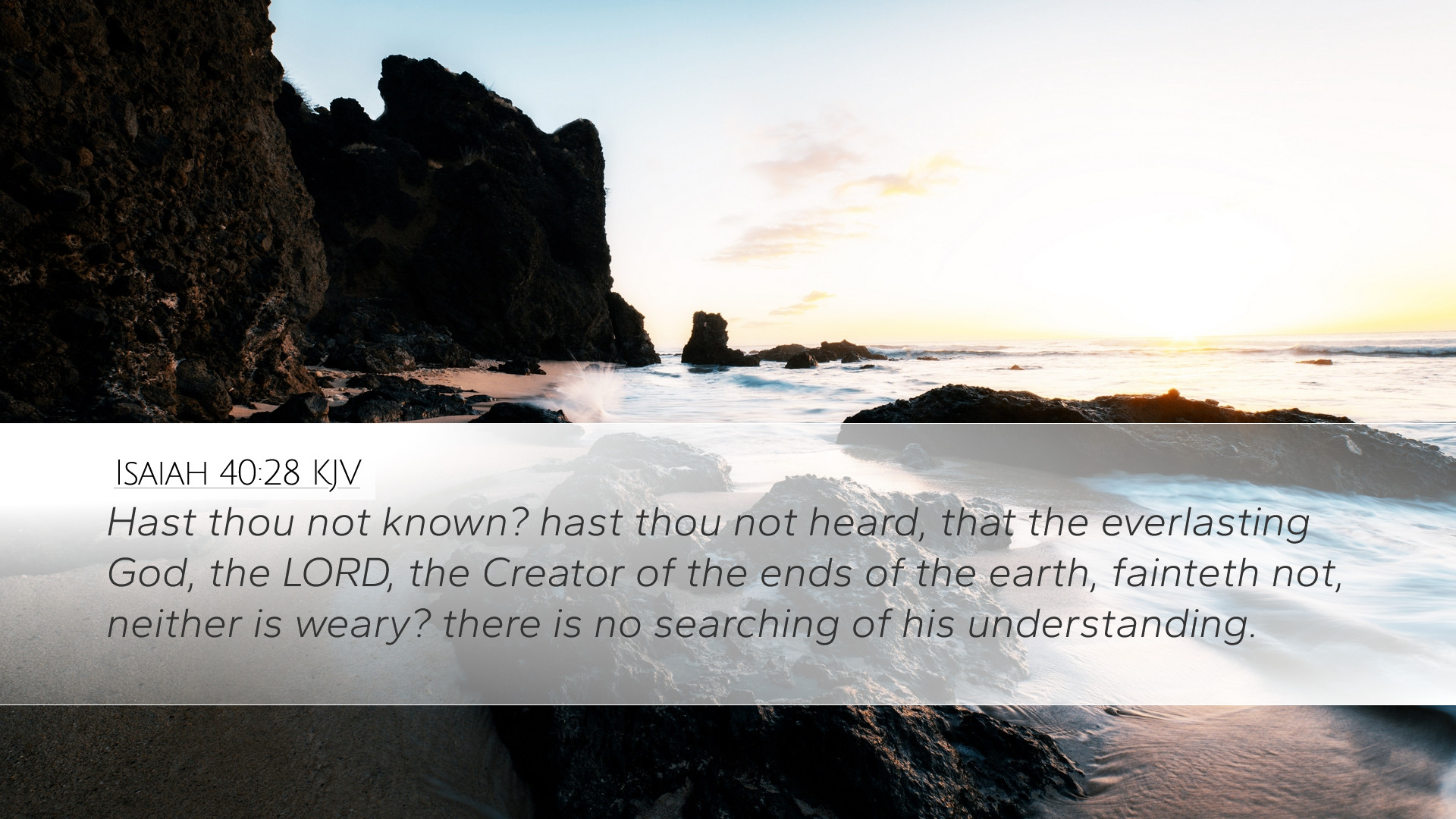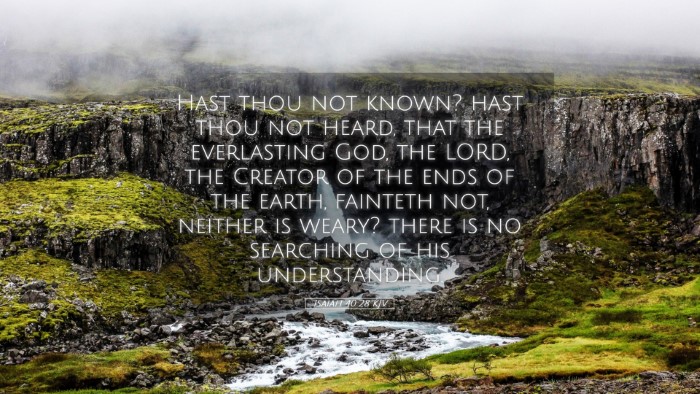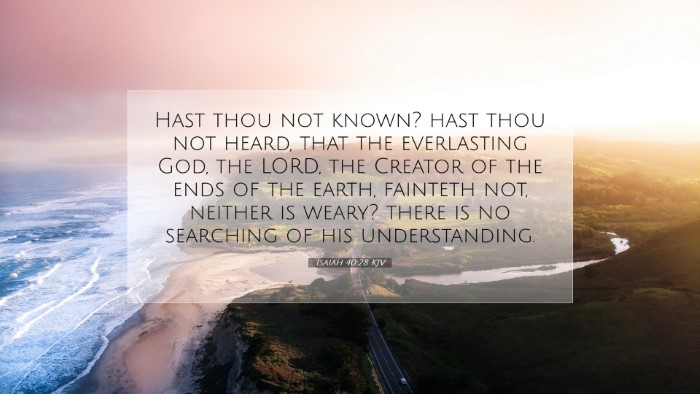Isaiah 40:28 Commentary
Verse: “Hast thou not known? hast thou not heard, that the everlasting God, the Lord, the Creator of the ends of the earth, fainteth not, neither is weary? there is no searching of his understanding.”
Introduction
This passage from Isaiah is a profound declaration of the nature and attributes of God. It emphasizes His eternal existence, His omnipotence as Creator, and His inexhaustible strength and wisdom, which serve as a source of comfort and hope for believers.
God’s Eternity and Sovereignty
Matthew Henry highlights that God is described as “the everlasting God,” indicating His eternal nature devoid of beginning or end. This concept underscores both His sovereignty and the assurance that He is not constrained by time. Henry notes that knowing God’s eternal character encourages believers to trust in His plans which transcend their immediate circumstances.
Albert Barnes adds that the phrase "the Creator of the ends of the earth" denotes God’s absolute dominion over all creation. He asserts that this creative authority invokes a sense of awe and reverence. The universe is under His control, reminding us that no situation is beyond God's governance.
The Assurance of God’s Strength
The latter part of the verse, “fainteth not, neither is weary,” reassures believers of God's infinite strength. Adam Clarke points out that unlike humans who tire and grow weary, God remains steadfast and active in His divine purpose. This is a powerful reminder for those who may feel overwhelmed or exhausted in their spiritual journey.
Matthew Henry argues that this declaration is particularly comforting to those facing life's hardships. It is a profound truth that amidst human frailty and despair, God is unchanging and always capable of providing sufficient strength and support for His people.
The Depth of God’s Wisdom
Albert Barnes emphasizes that “there is no searching of his understanding” speaks to the depth of God’s wisdom. It suggests that the fullness of God’s knowledge and purpose is beyond human comprehension. The wisdom of God surpasses human understanding and reflects the intricacies of His creation and governance.
Adam Clarke elaborates that this part of the verse challenges believers to recognize their limitations in understanding God's plans. It reminds Christians that faith often requires trusting in a wisdom that may not always align with human reasoning but is nonetheless perfect and infallible.
Implications for Believers
This verse contains profound implications for believers. In a world rife with uncertainty and challenges, it provides a firm foundation of faith. Knowing that God is eternal, all-powerful, and wise allows Christians to rest in His promises and sovereignty.
- Encouragement in Trials: Believers are encouraged to persevere through trials, knowing that God does not tire and is always there to provide strength.
- Trust in God's Plan: The passage calls for trust in God's divine wisdom, even when His ways seem obscured.
- Worship and Reverence: Acknowledging God’s majesty leads to a deeper worship and reverence for His holiness and power.
Conclusion
Isaiah 40:28 remains a cornerstone verse that articulates the Christian understanding of God’s eternal majesty and omnipotent strength. By reflecting on this scripture, scholars and theologians can find rich insights into God's nature that serve to bolster faith and encourage deeper worship among believers. As Matthew Henry, Albert Barnes, and Adam Clarke collectively encourage, recognizing the infinite nature and capacity of God transforms our understanding of trials, blessings, and the very essence of existence itself.


